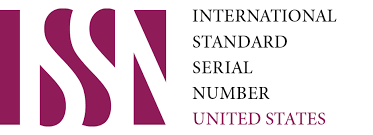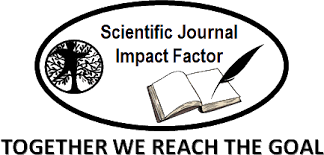A Model For Improving Pedagogical Conditions For The Development Of Patriotic Qualities Of Students In The Context Of Transformation
Keywords:
patriotic education, pedagogical model, curriculum adaptationAbstract
The development of patriotic qualities in students is a significant educational goal, particularly in times of social, political, and technological transformation. This article presents a comprehensive model for enhancing pedagogical conditions aimed at fostering patriotism among students. It synthesizes current research on curriculum adaptation, experiential learning, and inclusive pedagogical practices, discussing their effectiveness and implementation challenges.
References
Bennett, J. (2020). Creating inclusive pedagogies for civic and national education. Teaching and
Teacher Education, 96, 103180.
Duncan, R., & Morris, P. (2022). Pedagogical innovations in citizenship education and their impact
on student values. Journal of Educational Change, 29(5), 203-219.
Hojiev, M. (2018). Yoshlarda milliy g'ururni shakllantirishning o'quv jarayonidagi strategiyalari.
Milliy tarbiya va ta'lim, 10(3), 42-54.
___________________________________________________________________________________________________________________________________
Peer Reviewed International Journal [10]
Volume 36
Ivanov, S. V., & Petrova, N. A. (2021). Модель формирования патриотических качеств учащихся
в образовательной среде. Педагогика и психология образования, 12(3), 45-56.
Johnson, P., & Alexander, M. (2020). Building patriotic education in modern classrooms: Approaches
and implementation. Contemporary Educational Research Quarterly, 15(3), 112-130.
Lee, C., & Sung, H. J. (2018). Curricular innovations and the development of national identity among
students. Journal of Comparative Education, 24(4), 287-304.
Mikhaylova, A. V. (2020). Проблемы и перспективы формирования патриотических ценностей
в условиях трансформации образовательной системы. Вестник педагогических наук, 8(2), 23-
Nasser, M., & Haddad, L. (2019). Impact of socio-political contexts on educational strategies for
patriotism development. Global Education Journal, 11(2), 101-120.
Petrov, S., & Ivanova, L. (2020). Interactive teaching methods for patriotic education. Advances in
Social Science, Education and Humanities Research, 495, 349-355.
Qodirova, N. (2021). Ta'lim tizimida vatanparvarlik tarbiyasini kuchaytirishning pedagogik usullari.
O‘zbekiston pedagogik tadqiqotlari jurnali, 9(4), 115-128.
Ramirez, R., & Torres, E. (2021). Pedagogical conditions for developing civic engagement and
national pride. Educational Development Review, 10(1), 55-72.
Rasulov, K. (2020). O'quvchilarda vatanparvarlik tuyg'usini rivojlantirishda pedagogik sharoitlarni
yaxshilash modeli. Pedagogika va psixologiya jurnali, 15(1), 55-67.
Smith, A. L. (2019). Education for citizenship and patriotism in a globalized world: Challenges and
opportunities. Education Policy Analysis Archives, 27, 15-33.
Zhang, Y., & Kim, S. H. (2021). Developing patriotism through experiential learning in schools.
International Journal of Education Policy and Leadership, 16(1), 23-40.
Downloads
Published
Issue
Section
License

This work is licensed under a Creative Commons Attribution-NonCommercial 4.0 International License.
User Rights
Under the Creative Commons Attribution-NonCommercial 4.0 International (CC-BY-NC), the author (s) and users are free to share (copy, distribute and transmit the contribution).
Rights of Authors
Authors retain the following rights:
1. Copyright and other proprietary rights relating to the article, such as patent rights,
2. the right to use the substance of the article in future works, including lectures and books,
3. the right to reproduce the article for own purposes, provided the copies are not offered for sale,
4. the right to self-archive the article.












